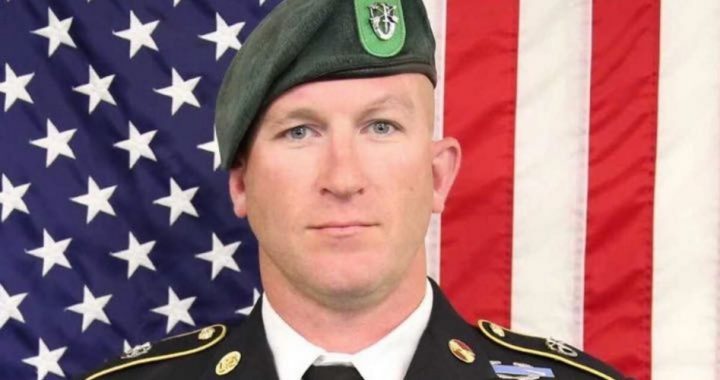
Podcast: Play in new window | Download ()
Subscribe: Android | RSS | More
Sgt. Maj. James G. “Ryan” Sartor (shown), a Green Beret who was assigned to the 10th Special Forces Group, died during combat in northern Afghanistan’s Faryab province on July 13.
“We’re incredibly saddened to learn of Sgt. Maj. James ‘Ryan’ Sartor’s passing in Afghanistan. Ryan was a beloved warrior who epitomized the quiet professional,” CNN quoted Col. Brian R. Rauen, the commander of 10th Special Forces Group (Airborne). “He led his soldiers from the front and his presence will be terribly missed.”
Sartor was awarded the Bronze Star Medal with three oak leaf clusters, the Defense Meritorious Service Medal, and the Joint Service Commendation Medal. His posthumous awards include the Purple Heart Medal and Bronze Star Medal, the Army reported.
The Wall Street Journal cited a statement from Taliban spokesman Zabihullah Mujahed, who in a telephone interview, said the militant group was behind Sartor’s killing, but offered no further details.
The Journal also reported that U.S. “peace envoy” Zalmay Khalilzad has been holding talks with the Taliban in recent weeks, supposedly in an attempt to negotiate an end to the war in Afghanistan. Khalilzad is a member of the Council on Foreign Relations (CFR) whose members have used their dominance over U.S. foreign policy for the past 70 years to pressure our government to intervene militarily in multiple wars around the globe, resulting in more than 119,000 U.S. combat deaths.
The United States has about 14,000 troops in Afghanistan, and their primary mission is to advise Afghan forces who are battling the Taliban. There now have been 10 U.S. troops killed in Afghanistan in 2019, and 2,426 fatalities since the start of combat operations there in October 2001, according to iCasualties.org.
NBC News reported on July 10 that the senior Taliban officials and Afghan officials issued a “road map to peace” following two days of talks in Doha, Qatar.
Khalilzad said the latest round of U.S.-Taliban talks, which began June 29, has been the “most productive session” since they started last year.
Another report from Radio Free Europe quoted from a very telling prerecorded video statement Khalilzad made, shown at a conference held at Georgetown University in Washington on July 11. “We would like to leave a very positive legacy here,” Khalilzad said. “We are not cutting and running. We’re not looking for a withdrawal agreement. We’re looking for a peace agreement. And we’re looking for a long-term relationship and partnership with Afghanistan.”
Last December, former Representative Ron Paul (R-Texas), who was a leading noninterventionist during his time in Congress, commented on President Trump’s announcement that he was removing U.S. troops from Syria and would draw down half of the remaining U.S. troops in Afghanistan. Paul said:
Most of the Washington establishment — especially the “resistance” liberals and the neocons — are complaining that by removing US troops from these two war zones President Trump has gone too far. I would disagree with them. I call President Trump’s announcement a good start. Americans are tired of being the world’s policemen.
Photo of James G. “Ryan” Sartor: U.S. Army
Warren Mass has served The New American since its launch in 1985 in several capacities, including marketing, editing, and writing. Since retiring from the staff several years ago, he has been a regular contributor to the magazine. Warren writes from Texas and can be reached at [email protected].



